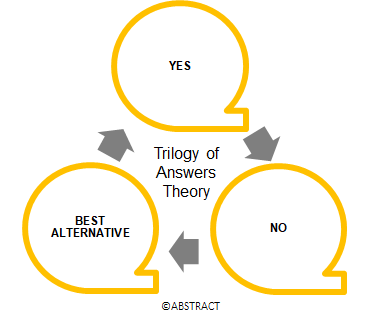Decision making - A practical guide
Mark Fryer
Decision making - A Practical Guide
In our last article, How to make a good decision,
we explored decision making by making sure the key “question to answer” was fully understood and how to use the “Spectrum of Consequence” model to empower people to make decisions. In this article, we will share the structured logical process for making great decisions and how to avoid “Group Think”.
In many situations it is obvious what the right or wrong decision is, though often we are presented with a number of suitable options and it’s more of a question of which option is best. Our research suggests that business decisions are regularly made to fix mistakes of the past – but, what if we got it right first time?
To increase the likelihood of getting it right first time we devised a Logical Process Model, which requires activation of the System 2 part of the brain. The Logical Process Model begins with the identification of the core “problem to solve” working through the key factors that affect the problem to solve, for example, the external forces and uncertainties surrounding the decision. It provides a thorough and practical framework with which to analyse the options and implications - and to identify the ‘best alternative’ option.
There are no rules when going through our logical process model and individual creativity is encouraged. Having gone through the process alone and prepared notes, it’s time to collaborate in a small team, no more than five ideally, to go through it all again, benefiting from each individual’s thoughts.
Of course, the model does not cater for unforeseen or uncontrollable factors, like Covid-19. Should these arise, rip up the original effort and start again with the new information.
Group Think is a very common corporate problem and often happens when there is:
- A strong and/or persuasive group leader
- A high level of group cohesion, for example, too many similar characters who view things the same way
- Intense pressure from the outside to make a decision – this may be superiors, key stakeholders, sponsors, partners who are becoming impatient.
In order to avoid Group Think you should adjust the situation to remove bias and influence. There are a number of ways to do this, for example:
- Ensure that individual responses to the problem to solve are sent to the chair or facilitator only and not copied to all
- Ensure responses are anonymous when distributed to the attendees or people may be influenced by the boss’s ideas and point of view
- Remove rank from the dynamic of the meeting. E.g. ask the boss/senior person to remain silent throughout or ask them to join only for the concluding remarks and the decision.
Over the four articles we’ve tried to share as many of our creations as possible on this wonderful subject. We appreciate that this is a deep and complex topic though we hope we have given you a good flavour of our research, thinking and solutions.
If you would like to know more or discuss how we may help you and your organisation, please get in touch with Nick Goddard on info@abstractuk.co.uk









